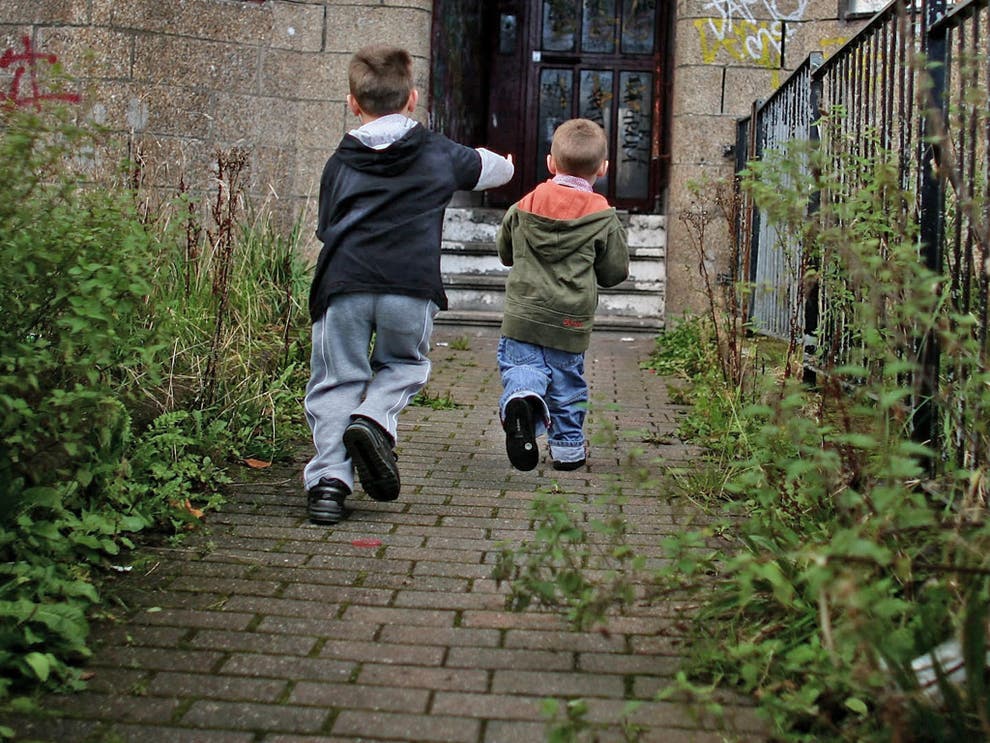Hundreds of child deaths could be avoided by reducing deprivation, study finds
Research identifies ‘clear association’ between risk of death and level of deprivation for children in England

Your support helps us to tell the story
From reproductive rights to climate change to Big Tech, The Independent is on the ground when the story is developing. Whether it's investigating the financials of Elon Musk's pro-Trump PAC or producing our latest documentary, 'The A Word', which shines a light on the American women fighting for reproductive rights, we know how important it is to parse out the facts from the messaging.
At such a critical moment in US history, we need reporters on the ground. Your donation allows us to keep sending journalists to speak to both sides of the story.
The Independent is trusted by Americans across the entire political spectrum. And unlike many other quality news outlets, we choose not to lock Americans out of our reporting and analysis with paywalls. We believe quality journalism should be available to everyone, paid for by those who can afford it.
Your support makes all the difference.Hundreds of child deaths in England could be avoided each year by reducing levels of deprivation, an NHS-funded study reveals.
The analysis, led by the University of Bristol National Child Mortality Database (NCMD), identified a “clear association” between the risk of death and level of deprivation for children in England, for all categories of death except cancer – concluding that around 700 deaths a year could be prevented.
The researchers analysed the records of 3,347 children who had died in England between 1 April 2019 and 31 March 2020 and, using postcode data, linked each child’s residential address to the government’s measures of deprivation. These are calculated using seven main areas, including income, employment, education and access to housing and services.
They found that, as deprivation increased, so did the proportion of deaths – with the death rate almost three times as high in the most deprived decile compared to the least.
The study reveals that more than one in five (23 per cent) of all child deaths might be avoided if children living in the most deprived areas had the same mortality risk as those living in the least deprived, equating to over 700 fewer children dying per year.
Professor Sir Michael Marmot of the University College London, and author of the report’s foreword, said that in a “rich society” deprivation should be “avoidable”, particularly of the kind that leads to deaths of infants and children – adding that this was a matter of “social justice”.
He said “urgent action” was needed to increase the generosity of benefits for children, such as child benefit.
Shadow work and pensions secretary Jonathan Reynolds said: “The idea that children in our country are having their lives cut short because of endemic poverty shames us all. We cannot strengthen our economy and deliver prosperity across the country without ensuring families have enough to get by.”
The researchers’ analysis of child death records where deprivation was mentioned showed that issues relating to the social environment, which included family debt, financial difficulties, homelessness in pregnant mothers, parental mental health problems and poor maternal nutrition.
One of the main themes identified were housing issues, including concerns around lack of cleanliness, unsuitable accommodation such as overcrowding, maintenance issues such as damp and mould or houses being in poor repair.
A housing issue was identified in 123 deaths reviewed, which included families being based in temporary accommodation or frequently moving to new accommodation.
The study found that there were 33 deaths in which homelessness was mentioned, either related to the father, mother, or child.
Homelessness most commonly affected pregnant mothers, who went on to give birth to babies who subsequently died, families with young children, and young people having left or been forced out of their family home.
Karen Luyt, professor in neonatal medicine at the University of Bristol and the report’s senior author, said the report found “strong evidence” of a relationship between childhood mortality and social deprivation in England.
It comes after figures published in March showed child poverty hit a 12-year high in the year before the pandemic, with the number of children living in relative poverty after housing costs rising by 172,000 to 4.3 million in 2019-20.
This amounts to 31 per cent of the child population, up from 29 per cent in the previous year and the highest level since 2007-08.
Experts have warned child poverty will have risen even further during the pandemic – for which the equivalent data is not yet published – and that working families face a “double threat” this winter to their living standards as unemployment peaks and universal credit is cut.
David Finch, senior fellow at the Health Foundation, said “urgent action” was required to prevent the higher rate of child deaths in more deprived areas.
“If we are to have a healthy and equal society, we must now ensure that these wider determinants of health – such as income, education and housing – are addressed,” he added.
“These findings underline the vital importance of a levelling up agenda that helps ensure everyone can enjoy a high quality of life, and brings new urgency to its delivery.”
Alison Garnham, chief executive of Child Poverty Action Group, said: “There can be no starker or more shaming indictment of our failing social protection systems than the findings in this report.
“Deprivation kills and until we have a credible government strategy for ending child poverty and deprivation, we will continue to let children down with the worst possible consequences for them.”
The government has been approached for comment.
Join our commenting forum
Join thought-provoking conversations, follow other Independent readers and see their replies
Comments